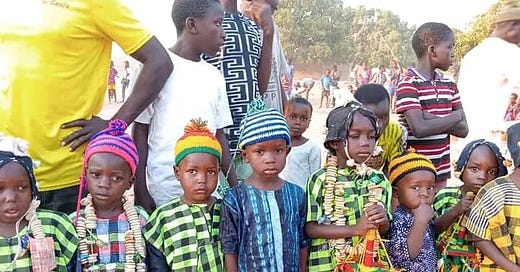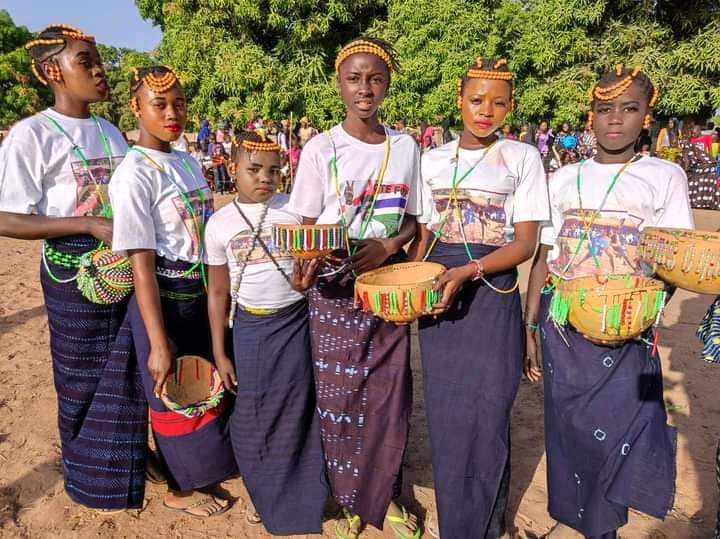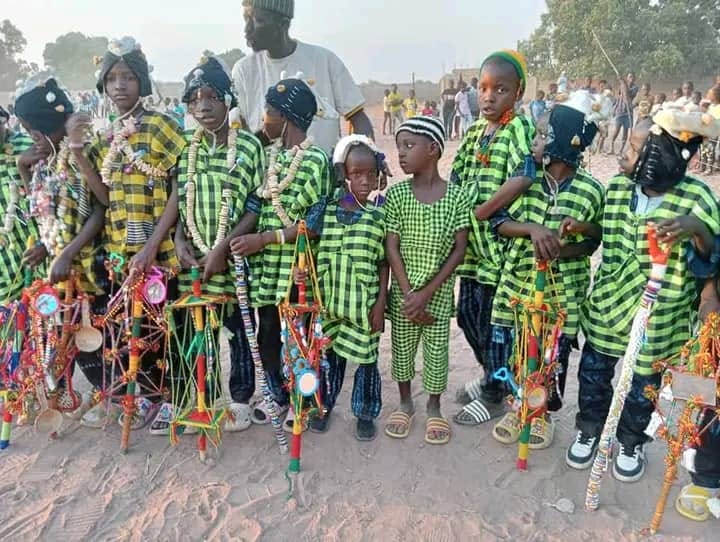There are certain preconceptions we Westerners carry around regarding circumcision in African countries—not for no reason, but I don’t think it’s always the shocking horror we assume it to be. I can’t fathom why you would wait to circumcise anyone until just prior to puberty but I suppose some people find circumcision to be brutal under any circumstances, so maybe it’s not for us to judge. At least not always. Let’s put all that aside and take a look at a traditional Mandika circumcision festival, shall we?
If you’d like to read about the particulars of the ceremony at the heart of the festival, Access Gambia has a pretty good description.
The festival is more or less what you’d expect from a neighborhood festival here in the U.S. Music, food, and “traditional drinks,” as Patrick put it. He puts great stock in traditional drinks—more about that another time.
Patrick describes the festival thus: “This circumcision ceremony usually happens every two or three years when male children are old enough to be circumcised. They discuss it among themselves. So when they agree their leader would send kola nuts to the mosque to beg elders and men of the society for a circumcision ceremony. Sometimes it takes to more than four years it depends on the number of male children needed to be circumcised.” I assume the kola nuts are a tribute of some sort. I didn’t ask.
It certainly is a colorful affair. As an outsider, Patrick could only stay briefly, “I can't participate much because there are restrictions. People are there to chase others out who are not going to donate rather to only take pictures. It's so lively with traditional dress, food, and masquerade.”
Lively indeed. I asked if people can buy food, the way we would at a U.S. festival, likely from a food truck. “Food is not sold it's available for free to the guests and those who have joined hands to prepare it and shop for it. I can eat but sometimes it doesn't seem worthy demanding things that you don't have any idea of how they are made available.”
“These are the circumcised children. They are so happy and look great in their clothes.” I guess they’re happy. They definitely look great in their clothes.
I’m cheating a bit here by going off topic but I love Gambian festivals. Here are some Fula girls celebrating Commonwealth Day1:
And a year or so ago Patrick sent pictures of a hunting ceremony in the capital of Banjul:
Whatever their economic shortcomings the country has a very rich culture, wouldn’t you say?
Until next time, teburum!2
Gambia is part of the Commonwealth but hasn’t always been. Due to political instability in the past they have darted in and out of the organization.
Goodbye, in Manjago.











